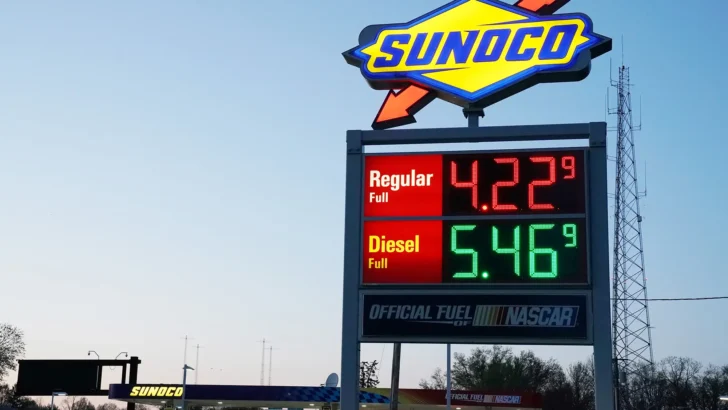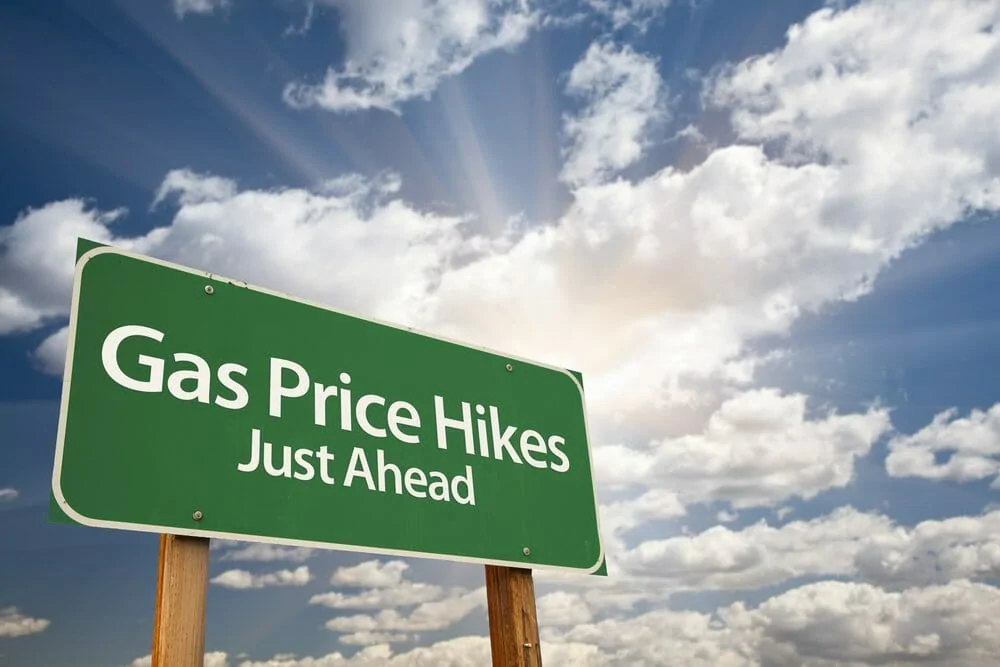In recent months, high gas prices have been a hot topic for most Americans. Many have been left wondering, how long will this high inflation last? Will this greatly impact my finances in the long-term? And who is at fault for this sudden increase in price?
Whether you own a car or not, high gas prices can still negatively impact you. Keep reading to learn more as to why things changed, and which Americans are most impacted by this drastic increase in gas prices.
When did high gas prices start?
As of May 10, 2022, the average cost of regular fuel in the United States hit $4.374 per gallon according to AAA, a historic ultimate high. Just one year ago, the average cost of fuel was only about $3 per gallon.
Ultimately, there are two main factors which have contributed to the recent surge in gas prices, according to Forbes.
- The COVID-19 Pandemic: Since March 2020, the pandemic has disrupted global supply chains, especially during country-wide lockdowns when travel and the demand for oil was at an all-time low. As the world and economy begins to recover, supply is not yet reaching the demand. This causes prices to be higher than pre-pandemic prices.
- Russia Invading Ukraine: When Russia invaded Ukraine on February 24, it caused an immediate global supply shock to an already shocked system. Russia is one of the largest oil producers in the world. Many world governments have condemned Russia’s invasion, enforcing sanctions against their oil supply, and ultimately removing Russian oil from the global supply available.
Apart from these global circumstances, gas prices are expected to continue to rise as we enter into the summer, as is typical during American summer months due to an increased demand.
So, which Americans are most impacted by high gas prices?
According to economists from the CNBC, low-income Americans spend the greatest amount of their budget on transportation, when compared to higher-earning Americans.
In other words, poorer Americans spend a similar amount of money on their transportation, even though they make significantly less money. This is because in areas such as the rural United States, Americans have limited options for transportation aside from driving their personal vehicle. A household with more income will spend less (percentage wise) of their income on gasoline.
This means that even as gas prices increase, a low-income American living in a rural area may not be able to decrease how often they are driving and filling up their tank. Kent Smetters, an economist from the University of Pennsylvania, argues that “the rural poor driving a lot- are getting hit harder.”
How are gas prices impacting the overall economy?
Surging gas prices are not only affecting Americans operating their personal vehicles, but are impacting overall pricing, in nearly every aspect of the global market.
Essentially, every company, supplier, and business in the world uses gas at some point in their operations, which causes their costs to increase. Many companies are relying on the consumer to cover this increased cost. For example, many airlines have begun to scale back the number of flights offered to passengers this year. Alaska Air will reduce its flights by up to 5% in just the first half of the year, due to “the sharp rise in fuel costs.”
Small businesses are also impacted by high gas prices. For instance, a landscaping business in New Jersey reported to the Washington Post that they were forced to recently increase their prices to help cover the increased cost of fuel. As the landscaping business runs entirely on lawn mowers, trucks, weed whackers, and other tools which all require gas, they are now spending nearly twice as much on purchasing gasoline. To cover this increased cost, the landscaping business has increased their pricing to its customers. While this increase is only about $1 or $2 per service, the owner worries it may drive away business.
However, the Washington Post reports that as already high gas prices increase, consumer spending tends to decrease. If a company raises its prices, the consumer will likely spend their money elsewhere. A major decrease in consumer spending will negatively impact the economy, as we saw at the beginning of the COVID-19 Pandemic in early 2020.
Is the Biden Administration doing anything to help low-income Americans suffering from these increased prices?
Thus far, the Biden Administration has taken several actions to attempt to minimize high gas prices’ effect on the US economy.
- In April, the Biden Administration announced a plan to increase production of ethanol-blended gasoline in the United States, to help increase the supply of fuel available to Americans. While this type of gas is less fuel efficient than typical gas, it is still expected to produce savings for the average American.
- Aside from increased fossil fuel production, Biden is also calling on Congress to quickly pass his plan to transition to clean energy made in America. According to his team, this plan will create millions of jobs in the clean-energy sector and ultimately save Americans at least $950 a year, by transitioning to electric vehicles and other clean energy sources.
- Finally, on March 31, Biden also invoked the Defense Production Act to increase the domestic production of minerals. These specific minerals are required to make the batteries required for electric vehicles, as well as long-term energy storage. Biden’s team implemented this to not only start the transition to clean energy, but also minimize the United States’ dependence on foreign supply chains, as far as they relate to energy.
If your family is short on cash this month due to high gas prices, and is having trouble putting food on the table, remember that there are several food-relief programs to help.
In Conclusion
Due to the uncertainty of the war in Ukraine, it is unclear how long gas prices will remain this high. Luckily, Low Income Relief will continue to report on changing circumstances, to ensure that all low-income Americans have access to the resources and information they need during this difficult time.


